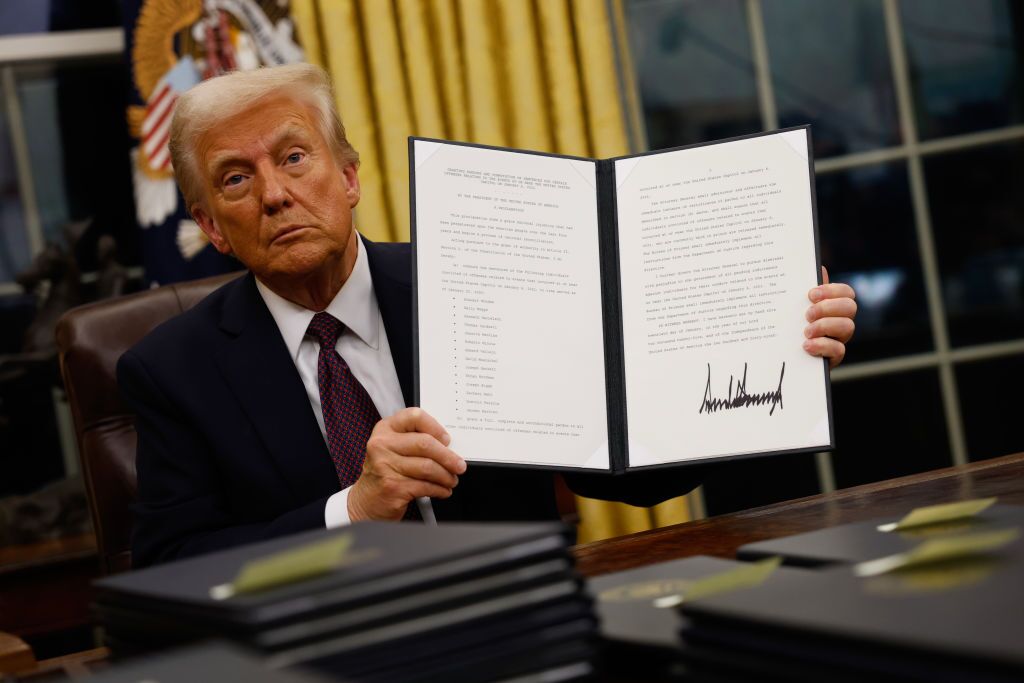President Trump's DEI Decisions
Informational article by Carly Zhao

Diversity, Equity, and Inclusion (DEI) is the term for policies that promote inclusivity in the professional world by welcoming all individuals regardless of race, gender, sexual orientation, social class, religion, and physical ability. Diversity ensures that people from various demographics are included, equity addresses barriers that marginalized groups may have faced, and inclusion focuses on making all individuals feel welcomed and comfortable.
Over the years, Diversity, Equity, and Inclusion (DEI) initiatives have become an integral part of America’s workplace policies. This push for inclusivity can be traced back to the U.S. Civil Rights Act of 1964, which was signed into law by President Lyndon B. Johnson. Title VII of the U.S. Civil Rights Act of 1964 “prohibited employment discrimination based on race, color, religion, sex and national origin.” To many people, this was the beginning of the DEI initiatives, which would expand from marginalized race groups to other diverse communities, particularly those surrounding efforts for the LGBTQ+, religion, gender, and disabled communities. In the following years, various movements, anti-discrimination laws, and inclusion policies would arise to help underserved groups. For example, the Feminist and #metoo movement focused on the protection of women in the workplace. It caused companies and hiring agencies to be more aware of their workplace practices to avoid backlash from the public. Later, in 2020, the #BlackLivesMatter movement that followed George Floyd’s murder sparked controversy again about diversity and racism in American society. According to CBS News, this recent movement “pressed companies to do their part in confronting systemic racism.”
Since 2020, DEI policies have helped break long-standing barriers in the workplace. CBS News found that the number of black executives in S&P companies increased to 417 in 2023. This is a significant increase from 2020 when it was only 253. However, despite its progress, DEI remains a controversial topic among conservative politicians and organizations. Former President Donald Trump was a vocal opponent of DEI policies during his first term, and his return to office has reignited efforts to dismantle them. On his first day back in office, Trump issued an executive order placing all federal DEI employees on administrative leave, fulfilling his campaign promise to eliminate DEI on "day one."
Many right-wing politicians have also begun linking the tragic crises of the Los Angeles wildfires and the Washington, DC, plane collision to DEI policies. Elon Musk stated in an X post that “DEI means people die,” in response to an article about Kristen Crowley being the first female chief in the department. Many opposers to DEI believe that workplaces are forced to hire simply based on race and not qualifications, leading to tragedies and accidents. However, defenders of DEI believe that it has helped several marginalized groups get equal opportunities to their white counterparts.
The controversy surrounding DEI has spurred action at the state and local levels. Conservative-led states have taken steps to eliminate DEI policies. For instance, in Florida, Governor Ron DeSantis signed legislation in 2023 that effectively banned DEI programs at public universities. DeSantis argued that these initiatives promote a “woke ideology” rather than a “fair” merit-based system. Similarly, in Texas, Governor Greg Abbott signed a bill that prohibits the establishment of DEI offices in public colleges and universities. In Arkansas, Governor Sarah Huckabee Sanders issued an executive order in early 2024 that prevented state agencies from using DEI criteria in their hiring and funding decisions. These states argued that such measures undermine actual qualification.
With the new administration taking office, DEI policies are undergoing significant changes. Many policies that support workplace diversity efforts are being rescinded. For women, these changes could have long-term consequences. Policies aimed at closing gender pay gaps and preventing workplace discrimination relied heavily on governmental support. The removal of DEI could affect equality in the workplace, along with a lack of resources to support women’s professional growth. Right now, the decision around the DEI policy is still unraveling. As the situation progresses, more information about these policies’ impact on women and other minority groups will be revealed - the question is whether it will be too late.
